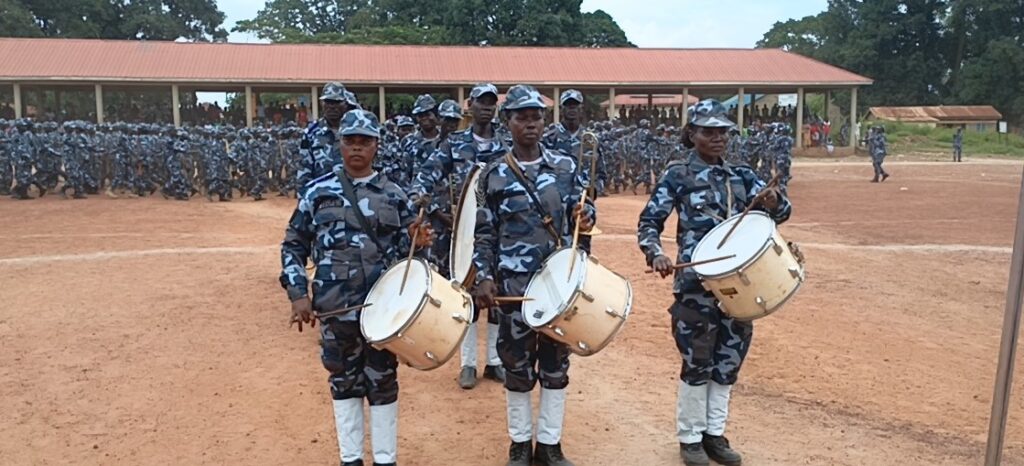The South Sudan Police Service (SSPS) on Thursday graduated 800 officers in Western Equatoria State capital Yambio.
Speaking during the graduation, Western Equatoria Police Commissioner Maj Gen Phillip Madut Thong said the officers had undergone six months training and acquired the knowledge and skills of the South Sudan Police.
Thong said the training was a refresher course and brought together the 800 officers from all the 10 counties of the state.
“This transformation, which I initiated in the South Sudan National Police Service, aims at ensuring that all officers are equipped with the knowledge on the law, techniques and experience to operate professionally without discrimination and use of force, power and injustice,” Thong said.
He called on the development partners to support the initiative to equip more officers with the appropriate knowledge and skills.
However, Western Equatoria State Governor Gen Alfred Futuyo Karaba questioned the National Government about the unified police forces taken to the training at the Rejaf center.
Karaba claims that over 1,000 officers were taken out of his State and none had returned or declared their deployment.
He advised those who graduated to work according to law because their mandate is to protect the citizens and their properties.
Some of the officers who spoke to Radio Tamazuj expressed their happiness, citing the numerous challenges that came with the training such as inadequate food and no social life.
Simon Erneyo said he was happy to join his colleagues in protecting the law. He said he would work according to what he was taught and encouraged others to join the service for the protection of civilians.
Joice Martin Gasi said she would work hard to reduce crime in the state.
“Am happy because we have graduated after a trouble-free starting,” she said.
Yambio resident William Manua urged those who graduated to respect the law and refrain from using excessive force. He said the police and not the army or any other unclear forces should handle matters of civilians.
“If someone commits a crime, they should be reported to the police for arrest and not taken to an unknown location or to the army,” Manua said.




